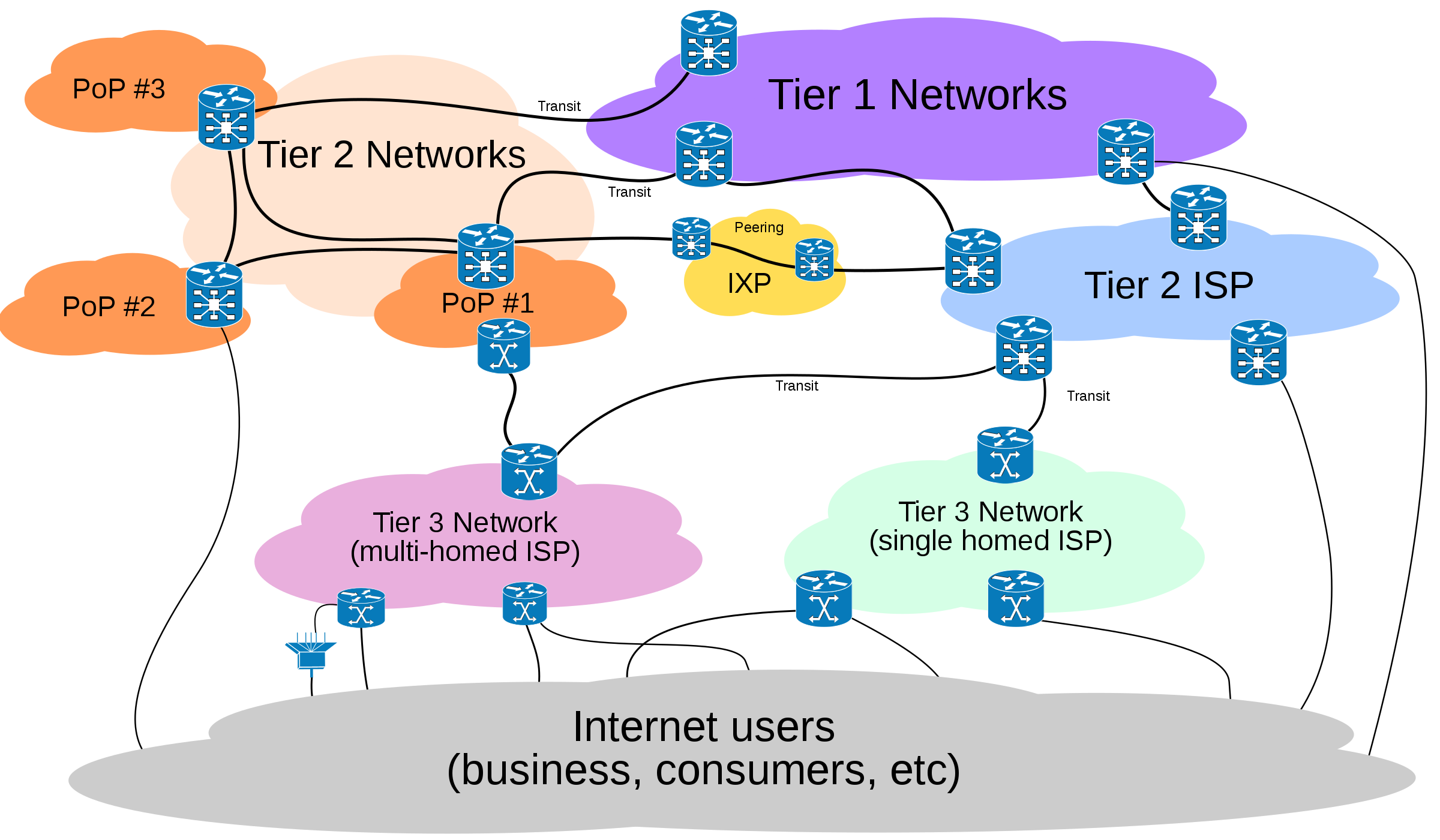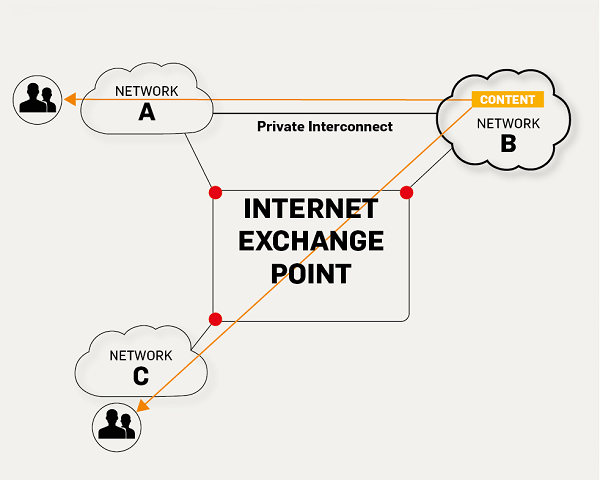Internet Exchange Points, in short IXPs or IX, is the most critical section of the Internet’s infrastructure. An Internet Exchange Point is a physical facility through which various Internet Service Providers (ISP), Content Delivery Networks (CDN), Point of Presence (PoP) meets, and exchange traffic, known as Peering.
This saves a lot of money wasted on international bandwidth for the ISPs and improves connectivity for their customers by reducing latency.
Look at the image below, an IXP is directly or indirectly connected to each other and peers the connectivity. It keeps local traffic local and avoids access to international routes unless truly needed.

In short, IXPs are the main hub where all the network services like ISP, CDN, PoP, and similar networks exchange their internet traffic without burning money.
Before you get deep in to the Internet Exchange, know some common words and their meanings, otherwise, they are nothing more than a jargon.
Autonomous System (AS)
It is a group of IP networks operated by one or more network operators that have a single and clearly defined external routing policy.
As you know the Internet is not just one big network, but a network of countless computer networks connected to each other, and each of those network entities are known as Autonomous System.
Each of those entities has its own unique number called Autonomous System Number (ASN) that is used by Border Gateway Protocol (BGP).
Border Gateway Protocol (BGP)
BGP is a routing protocol for the Internet to describe administrative boundaries on the Internet. BGP is very much similar to a postal and a mail delivery service that selects the most efficient and shortest network routes rather than taking any random routes for delivering Internet traffic.
Transit
Internet transit (in short Transit) is the service of allowing network traffic to cross or transit a computer network, usually used to connect a smaller Internet Service Providers to the larger Internet. For instance connectivity between Tier 1 ISP, Tier 2 ISP, and Tier 3 ISP are established through a transit network.
All the above network systems are connected to IXP in a direct or indirect way.
Here IXP has three major roles to play, which are…
- Interconnect networks directly.
- Manage and reduce internet traffic.
- Offer the fastest connection to distanced regions.
The main job of IXP to allow networks to interconnect directly, via the exchange, rather than going through one or more third-party networks. Plus side of a direct interconnection is a low cost, low latency, and high bandwidth.
Look at the below image…
Network A, B, and C are directly connected with an IXP, while Networks A and B both are interconnected with their own private line.

Users who are connected with Network A accessing the content of Network B will directly access the contents without passing through IXP. Private connection of Networks A and B eliminated the need for IXP thereby reduces latency, improved round-trip time.
Users who are connected with Network C accessing the contents of Network B will indirectly access the content passing through IXP. It will be fast but there will be small latency, round-trip time, and more network routes to travel.
Since all the ISP are connected to IXP directly of indirectly it reduces the portion of an ISP’s traffic that must be delivered to an upstream transit provider (simply traffic that goes out of that region), thereby it reduces the bills. Note that traffic passing through an exchange is typically not billed by any party, whereas traffic to an ISP’s upstream provider is. Because ISPs have to pay IXP a regular fee for interconnection, and ultimately ISP bills that cost to you.
Finally, IXP is also beneficial in offering the fastest connection in regions which is far away from the city. Direct connections will always be faster compared to connections established by several ISPs.
Leave a Reply